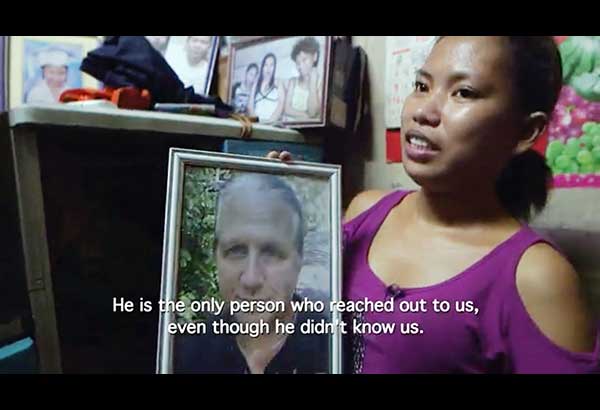Abused domestic helpers run to an unlikely hero

Through a Facebook page created by American Karl Frederick Anderson, hundreds of abused Filipina domestic workers were united with their families and saved from abuse.
MANILA, Philippines — Many Filipinos in pursuit of better job opportunities venture to other countries to break free from the grip of poverty.
However, a number of migrant workers who aspire for greener pastures by providing household services overseas tend to fall prey to modern-day slavery.
Countless cases of abuse have already been reported in the past couple of years. Some commit suicide to escape the horrors of violence; others end up being unjustly executed.
Yet the worst part of it all is that the repeated cycle of injustice continues because of a well-functioning system called “kafala,” which leads to exploitation and impunity.
Fortunately, an American who runs a record label in California decided to take up the cudgels for voiceless Filipina domestic helpers.
Learning from a friend four years ago about the situation of domestic helpers in Saudi Arabia and how attempts to reach out to various human rights organizations end in vain, Karl Frederick Anderson decided to take matters into his own hands.
In an interview, Anderson said that Filipino domestic helpers are typically overworked but underpaid. He said that the average domestic helper usually works around 15 to 20 hours a day without any dayoff for the duration of the worker’s contract.
He noted that sexual and verbal abuse sometimes came with the job, while others are deprived of simple liberties like stepping out of the house. Other employers even confiscate a helper’s passport.
“They would suffer verbal abuse on a daily basis. Almost all workers would have their passports and paperwork confiscated and would be locked in the house and not [be] allowed out for the full two years they are contracted. Most would have some delays in payment over the course of their contract,” he said.
 Karl Frederick Anderson
Karl Frederick Anderson“It is an endless stream of human suffering. It happens so often you get numb to it,” Anderson shared.
This prompted Anderson to do what other private individuals or organizations could not – help abused Filipina domestic workers go back to their families in the Philippines.
In order to widen the reach of his crusade, Anderson utilized the power of social media to spread awareness on the matter while serving as a platform where cases of abuse can be reported.
Through his Facebook page called Filipino Domestic Worker Abuse in Saudi Arabia, Anderson said that hundreds of abused Filipina domestic workers have been saved from their employers and were united with their families.
“It quickly became one case after another. I would help another worker get home and another was referred,” he said.
Anderson believes that in order to finally put an end to the cycle of abuse, the government should stop sending Filipino domestic workers abroad.
“The only way to stop workers from being abused is to stop sending them there. You need to stop the abuse before it starts. These are not isolated incidents of abuse. It is the standard treatment of workers. I think abuse is cultural and the employer believes they own the worker and have the right to make them do anything,” he said.
Last year, an estimated 2.2 million overseas Filipino workers were deployed to Saudi Arabia and other Asian countries, according to a survey conducted by the Philippine Statistics Office.
Saudi Arabia, a place where some OFWs are still on death row, remains the top destination for Filipino migrant workers.
Despite that, cases of abuse continue to this day.
Anderson’s admirable advocacy of helping save abused migrant workers in Saudi Arabia is the subject of a moving documentary entitled “Corvéables à merci - Le scandale des bonnes asiatiques” by Alexandra Jousset and Gratiane de Moustier.
Their work received distinctions at the 2017 FIGRA International Festival of the Grand Reportage of News and Society and the 2017 FIPA International Festival of Audiovisual Programs.
- Latest




























